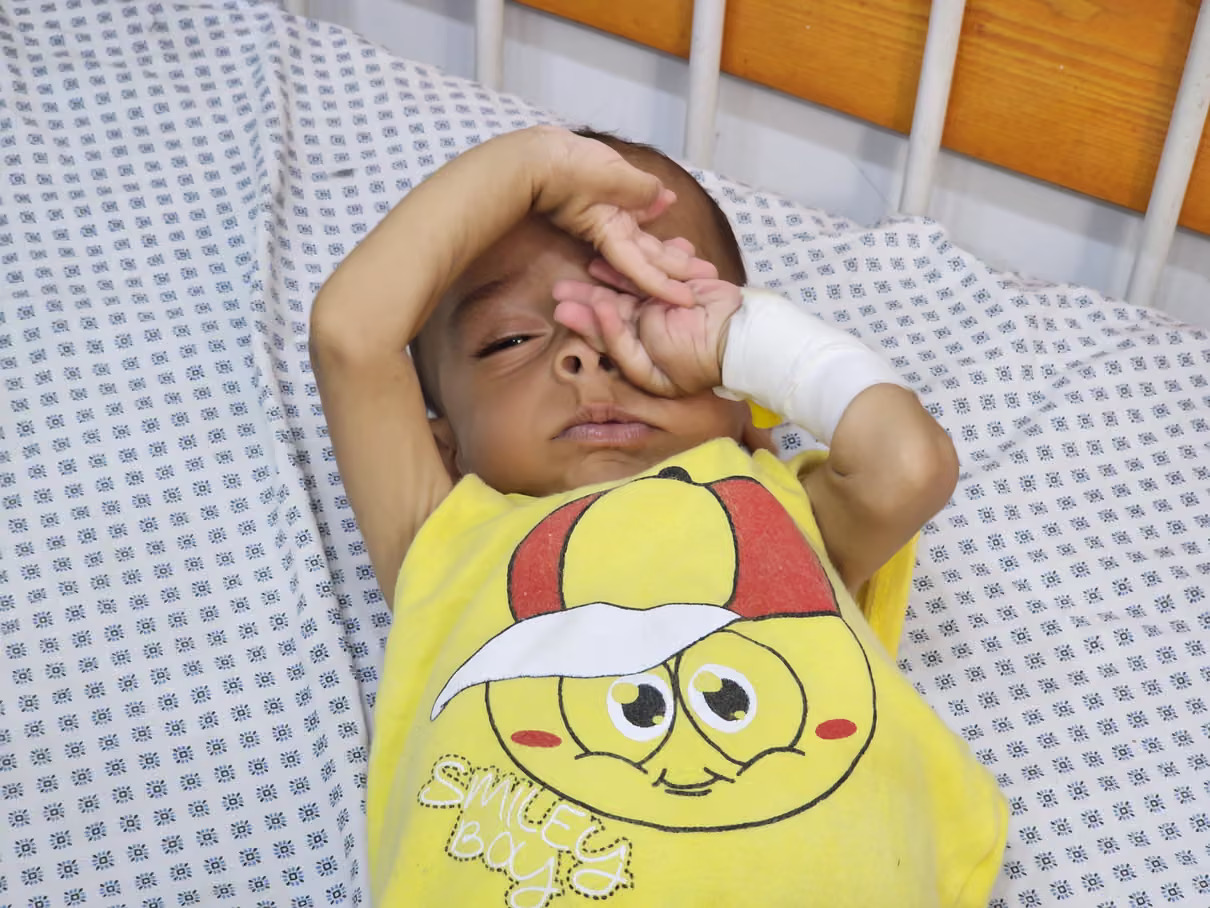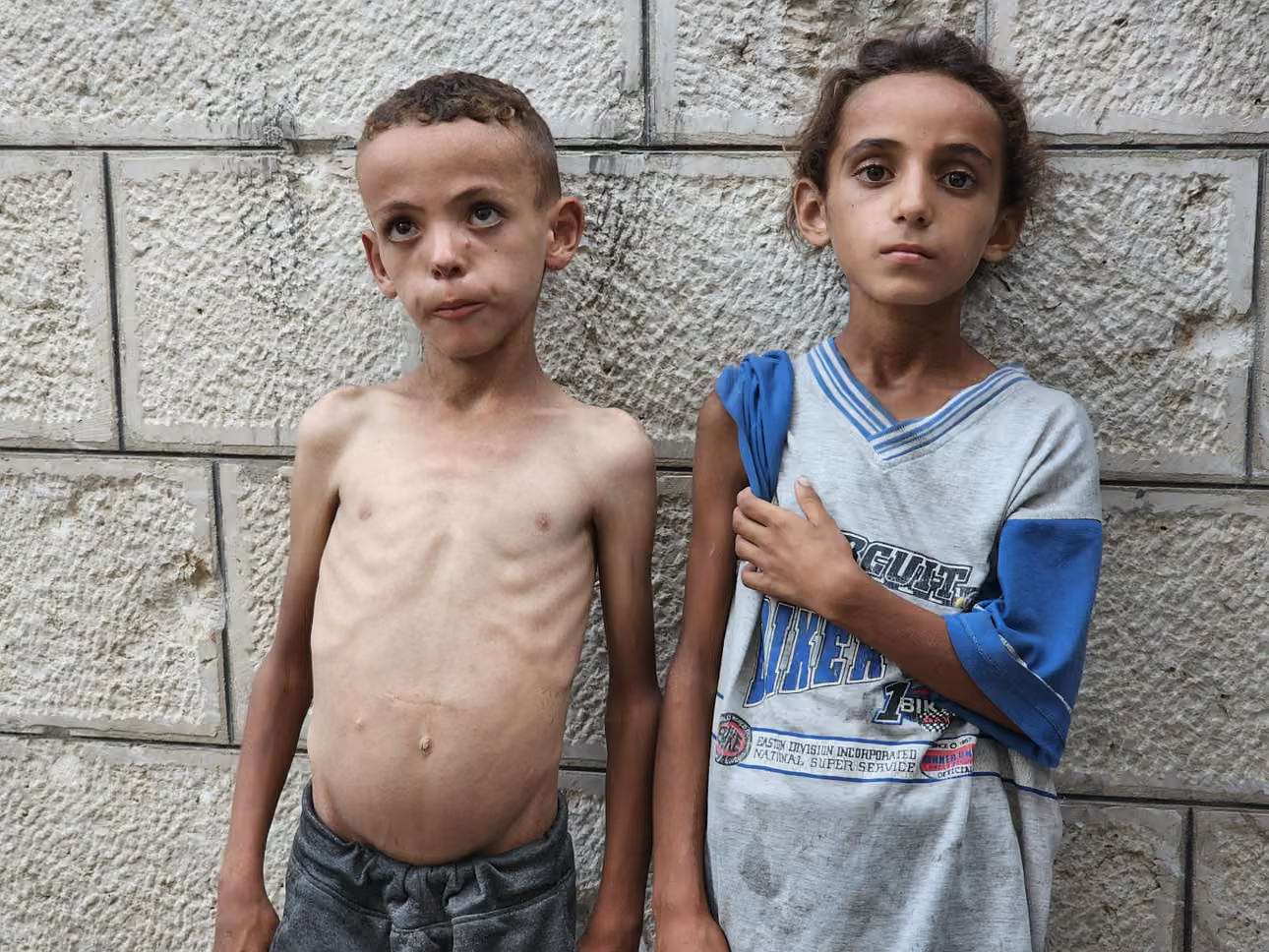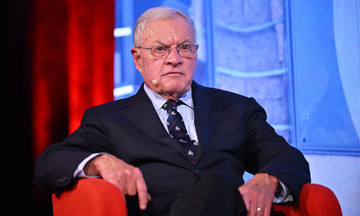While crying, the baby gnaws on his tiny, emaciated fingers. At 7 months old, Mohammed Aliwa weighs less than 4 kg. His face is gaunt, his body skeletal.
"My biggest fear now is losing my grandson to malnutrition. His siblings are also struggling with severe hunger. There are days they go to bed with nothing to eat", Faiza Abdul Rahman, Aliwa's grandmother, said from the Palestine Friends of the Sick Society (PFBS) hospital in Gaza City.
Rahman also regularly goes hungry. The day before, the only thing she ate was a piece of pita bread, which cost 4 USD. The price of flour in the Gaza Strip has increased 30 times compared to the market price at the beginning of the year.
Aliwa was born healthy, but his mother suffers from severe malnutrition and is unable to breastfeed. Since he was born, the family has only been able to acquire two boxes of formula.
 |
Mohammed Aliwa at the PFBS hospital in Gaza City. Photo: Guardian |
Mohammed Aliwa at the PFBS hospital in Gaza City. Photo: Guardian
For months, Israel has restricted the amount of food entering Gaza. The total amount of food allowed into the Strip is far below the needs of its 2.1 million residents.
The result is famine, and the number of starvation deaths is rising sharply. The PFBS hospital's treatment area is overflowing with emaciated, skeletal children, crammed onto 12 beds.
Only two pediatric teams remain active in the city, yet 200 children come for examinations every day. At PFBS, Doctor Musab Farwanna spends his days caring for the children, then returns home to share meager meals with his own hungry children.
His entire family is losing weight because his salary buys almost nothing. He is also afraid to risk joining the scramble for aid at distribution points run by the Gaza Humanitarian Foundation (GHF), supported by Israel and the US.
International observers have criticized the GHF model as "militarized," noting hundreds of people have been shot dead while waiting for aid distribution at these points. Recently, Doctor Ramzi Hajaj, Farwanna's colleague, was killed while trying to find food at such a distribution point.
In just the first three days of this week, health officials in the Gaza Strip recorded 43 starvation deaths, compared to a total of 68 previously. Gaza has never been this hungry, despite warnings of famine throughout nearly two years of conflict, Guardian reporter Malak A Tantesh describes from Gaza.
"We have endured hunger, but never to this extent. This is the most difficult period we are going through", Rahman said.
 |
Two Gazan children sell bracelets, begging near a ruined church in the city. Photo: Guardian |
Two Gazan children sell bracelets, begging near a ruined church in the city. Photo: Guardian
According to Tantesh, even money or influential sponsors can no longer protect Palestinians. "Humanitarian organizations are witnessing their own colleagues and partners wasting away," over 100 aid groups in the Strip warned this week in a joint statement.
On 21/7, Agence France-Presse (AFP) announced for the first time in its history that it is at risk of losing a staff member to starvation.
"The vast majority of Gazans are starving. I don't know what to call this situation other than mass starvation, and it's man-made," WHO Director-General Tedros Adhanom Ghebreyesus said on 23/7.
Before the conflict, Umm Youssef al-Khalidi's five older children, aged 7 to 13, were all excellent students on scholarships. Now, they spend their days sitting on the roadside by a ruined mosque in the city, trying to sell bracelets. Occasionally, someone buys out of pity for the gaunt, grimy-faced children in tattered clothes, but the money they earn is negligible.
Al-Khalidi also has a 2-year-old daughter. Her husband is paralyzed and uses a wheelchair. "We have to use water to quench our hunger. My children are skeletal. The slightest movements make them dizzy. They sit down again, begging, but I have nothing to give them. I can't lie and say I'll bring something home, when I know I can't."
Duc Trung (Guardian, Reuters)












